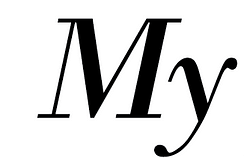Let’s Look at Erotica as a Legitimate Genre
Smut as literature
Content Notes: This piece discusses sexuality and sexual acts, as well as censorship and discrimination.
 My first encounters with sexuality happened to take place in the written wor(l)d. As a kid I ate up books and as I grew bored with books meant for my own age, I started reaching for books meant for older audiences. I remember reading books borrowed from my mother and discovering that a kiss didn’t have to be the end of a romantic scene. I was suddenly submerged in a world that was new and intriguing.
My first encounters with sexuality happened to take place in the written wor(l)d. As a kid I ate up books and as I grew bored with books meant for my own age, I started reaching for books meant for older audiences. I remember reading books borrowed from my mother and discovering that a kiss didn’t have to be the end of a romantic scene. I was suddenly submerged in a world that was new and intriguing.
I snatched up every book I could get meant for adult minds. I discovered so much of my sexuality buried between the pages of such books. My friends at the time used to joke that they always skipped through the sex scenes and I couldn’t imagine why. I couldn’t get enough of it.
As I grew up I found that it was harder to find content that could satiate my desires. In most of the books I read, the sex scenes were vague, full of euphemisms, and short-lived. I wanted more. When I discovered erotica as a genre I was overjoyed! The sex scenes were longer, more descriptive, and sensual. They went on for pages instead of a few short paragraphs. Yet, I was still unsatisfied.
I grew frustrated with my options for erotica. Having to shuffle to back corners of bookstores and staring at sparsely filled shelves, I ended up giving up on printed works and relegated my steamy sessions to late night internet searches.
But why should we settle for our sexual desires to be put on the back burner? Why try to feed our hunger with unpolished stories found on web forums, or wade through piles and piles of vanilla, heterosexual, monogamous smut to find that one story that touches on the kinks that light our fires? Why do we settle for erotica to only be raunchy from the male gaze? Why can’t femmes be raunchy as well as sensual?
Erotica has been in literature for a very long time. The Story of O was written in the 1920s, a contemporary of Venus in Furs, both erotic novels about sado-masochism. Venus in the Cloister, an exploration of female sexuality in convents, was published in the eighteenth century. The Kama Sutra was written around 400 BCE. So why hasn’t erotica flourished in the way other literary texts have?
Why has erotica been dismissed as trivial smut? Why don’t we consider erotica to be a legitimate genre? Why do we view erotica authorship as the secret stepping stone of authors, rather than an end goal? Why do we consider smut bad?
These erotic texts exist and there are literary criticisms speckled throughout history, and yet there is an entire history of controversial texts, with lewd short stories that shocked, that were subsequently banned from the public. Their biggest scandals were typically more the uproar that responded to their publications, than anything that was inside it.
With the rise of censorship, especially rising concurrently with Christianity, erotica was stalled in its steps. Pornography was banned and burned wherever it could be found. Having your name attached to it marred your reputation. Erotica wasn’t being produced because we were made to feel ashamed by it.
Now, we are entering a time in which sexuality on print is making a resurgence. Though to surprisingly mixed reviews, Fifty Shades of Grey brought erotica to the forefront of the mainstream audience. It wasn’t just being spoken about on kink forums, but everywhere. Yet as the kink community debated the consequences for how kink was represented, the mainstream called it pornography and mocked it, often without ever having picked it up.
So why does this happen? Why are people so keen to mock a book that they haven’t read?
There are many factors that could come into play of course, but one could be that there just isn’t enough erotica out there to establish it in the public view. More content needs to become available. Not just the sort to be kept on hard drives or filed in between the pages of a notebook.
Erotica needs to be explored and evolve into something bigger. Think of any other genre that is generally accepted by the public. There are always good and bad books, long winded compendiums, and anthologies of emerging writers. People write entire books about the social implications of some, and some are read only while sitting on the toilet.
In order for erotica to become a legitimate genre, we need to start treating it as a legitimate genre. We need more people to step up and proudly proclaim their love for it. We need to publish it, criticize it, and experiment with it. We need magazines and journals about it. We need to pick it apart and put it back together, only to rip it apart again. We need to talk about it, not because we’re shocked by its brazenness but because we need to treat it like any other book.
Legitimizing erotica is more than the production of more erotica. It’s about opening the floor to erotica writers to participate without shame. Imagine the kind of content that could be produced if we welcomed erotica writers to talk about their craft. Imagine a world in which erotica authors could actually be paid for their work. Imagine if we showed erotica writers that their work was valued.
If publishers are too embarrassed to produce and market erotica, where are authors supposed to submit their work and be paid? Print publications are dwindling, and the majority of publishers choose to publish romantic ebooks rather than the erotic sort. Those that do publish “erotic romance” offer low royalty rates and sell them for under $3. If you decide to write for them, you have to write for specific markets, and those markets tend to be white, able-bodied, young, and cis.
That’s not the kind of erotica we need. If we aren’t paying smut writers, we are cutting off a source of writers who can offer diverse experiences. There is a huge pool of writers who aren’t writing because they can’t pay their bills with it (writers who relegate their writing to weekends or train commutes to have full time jobs).
Imagine if they did get paid. We could have writers with different backgrounds and identities contributing. We could have essays on the representation of people with disabilities. We could read about black bodies that celebrate them instead of fetishize them. We could have erotica featuring non-binary characters. We could have erotica that doesn’t force you to associate romance with “acceptable sex.”
I think back on who I was when I first discovered erotica. I was ashamed of my interest in sex, and I didn’t understand my body. I would have done anything to read about brown bodies, to read about people with disabilities having sex and enjoying it, about bodies that weren’t just tiny waists and big breasts. I wanted to be able to read about women who have sex with women who weren’t either manhaters or just learning to please men.
While I am still searching for better options for erotica than Literotica, this is a sector of the literary community that is being raised up. Cleis Press has been a favourite of mine to find erotica beyond the binary of “Straight” and “Gay/Lesbian,” and has made some attempt at including diversity among their publications. They have titles that include, Best Bisexual Women’s Erotica, Best Black Women’s Erotica and Best Gay Asian Erotica. They are perhaps the largest publisher that publishes (and pays for) new erotica.
But smaller publications are also ready to fill in the gaping hole in the industry. In Toronto, Milkweed is a sex-positive feminist magazine that publishes erotica. They’re currently working on their fourth issue, but their previous editions have been selling out on their website. Their mission is to be more inclusive, diverse, and respectful than the way erotica has often been perceived.
We know how important representation is in movies and TV shows, so why aren’t we demanding the same thing in erotica? Erotica may be about sex, but sexuality is so much more than just “bumping uglies.” How we have sex and how we feel about sex is all affected by what we consume about sex. So, let’s stop focusing on the scraps and start focusing on the rest of the table that still awaits to be eaten.
Author’s Note: This piece is an edited version of a talk I had given in June 2016 at BEDx, a sexuality mini-conference that takes place in Montreal.
Milk Weed Zine: A Toronto-based feminist erotica zine
Cleis Press: A sexuality publisher that focuses on LGBTQ, BDSM, romance, and erotic writing for all sexual preferences
